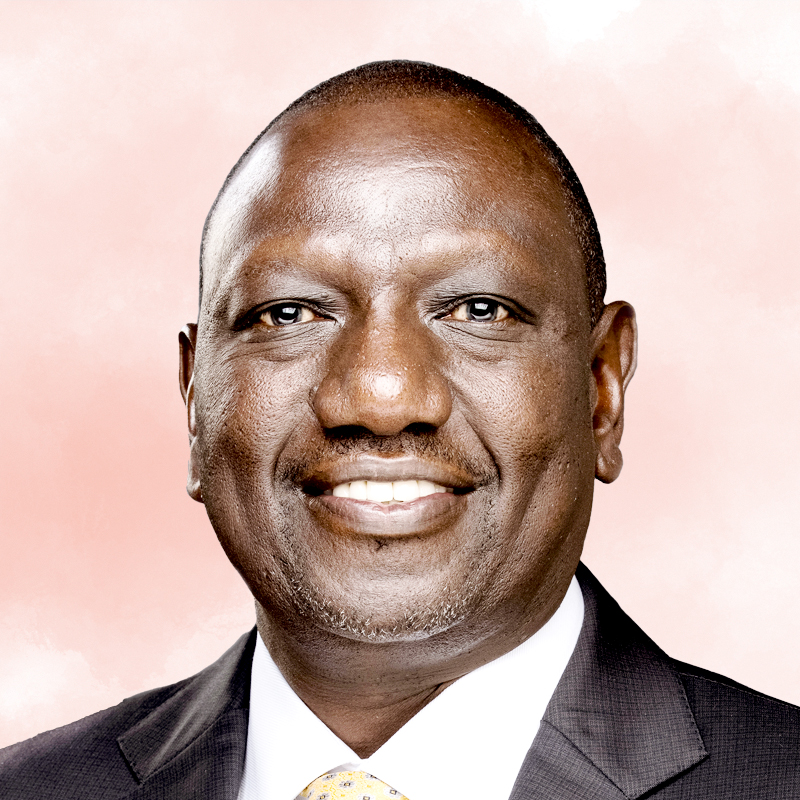William Ruto is the President of Kenya, where he has emerged as a leader on green investment for Africa. Kenya hosted this year’s inaugural Africa Climate Summit, which secured $23 billion in funding for green projects for the continent. As part of Kenya’s efforts to increase electricity access, 80% of the grid is supplied by low-carbon sources.
What is the single most important action you think the public, or a specific company or government, needs to take in the next year to advance the climate agenda?
Capital providers need to realize that the risk of investments into Africa generally is structurally overstated—and, accordingly, [they] need to bring down the cost of capital. This overstating of risk is true even before taking into account the downside risk and costs of inadequate climate action—if that were incorporated, the cost of capital in Africa could come down even further, since Africa can offer climate-positive growth: it can be a globally cost-competitive climate action powerhouse, greening global supply and manufacturing chains and removing carbon. This will need concerted effort from multilateral development banks, governments, credit rating agencies, and private investors.
What sustainability effort do you hope will gain popularity with the general public this year, and why?
The most important thing the general public needs to advocate for is halting de-globalization. Climate change is a global problem that cannot be solved in a fragmented approach, dividing the world into polluters and victims. Africa can provide affordable renewable energy, green products, and conservation and climate restoration. But that will only happen if we think of humanity as sharing a joint burden and future, and if we deploy economic activities where they make most sense to drive human development and counter climate change as quickly, cheaply, and effectively as possible.
What’s the most important climate legislation that could pass in the next year?
The key legislation to pass in the next year is progress towards a global carbon price reflecting the true cost of climate change and associated trade regulation enabling global solutions. Africa’s renewable energy potential, young workforce, and natural resources and assets create an inherent ability to provide solutions—cost-competitive green products and services, whilst addressing growing global labor shortages. Properly pricing externalities is needed to create the incentives to make climate-smart solutions the economically rational option, displacing fossil fuels on the business and investment case. Fair and equitable market access will allow us to build on each other’s strengths globally.
- The 100 Most Influential People of 2024
- How Far Trump Would Go
- Why Maternity Care Is Underpaid
- Scenes From Pro-Palestinian Encampments Across U.S. Universities
- Saving Seconds Is Better Than Hours
- Why Your Breakfast Should Start with a Vegetable
- Welcome to the Golden Age of Ryan Gosling
- Want Weekly Recs on What to Watch, Read, and More? Sign Up for Worth Your Time
